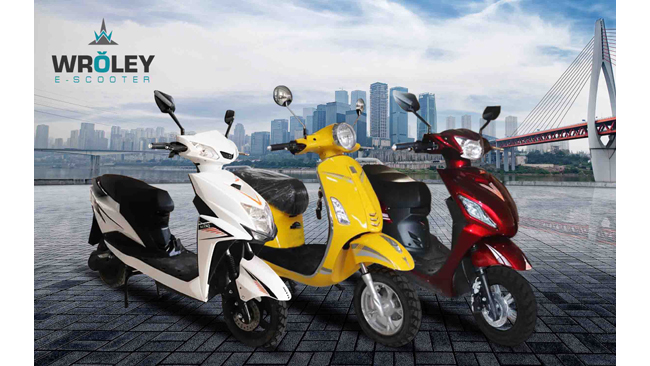
New Delhi, March Jaipur
The Indian electric scooter market has been on a constant growth trajectory since 2014 especially with an encouraging sales figure of 152,000 electric scooters and motorcycles by the end of 2019. As per industry standards, this was a 20.6% rise since 2014 year on year. According to a recent report by Mckinsey, the Indian electric two-wheeler market is expected to touch 5 million by 2025 and subsequently 9 million by 2030, acquiring 25-30% of the total two-wheeler market share.
India is the home to 14 out of 20 most polluting cities in the world and
accounts for 6% of the Global fuel-based carbon emissions as per WHO. Besides
environmental factors, exorbitant fuel prices, which are not expected to come
down any sooner, it is the best time for India to switch to electric
two-wheelers as the first step towards an environment-friendly, cost-effective
and safe riding solution. Ankit Agarwal, Managing Director, Wroley E-Scooters
said in a recent interview. “Even though the Government has been making an
effort to boost the sale of EVs through tax exemptions, purchase rebates, and
financial incentives for the consumer, a lot still needs to be done at the
infrastructural and implementation stages for instance setting up of charging
stations or charging points in the heavily congested metro cities, circulating
awareness on the benefits and advantages of electric vehicles and imparting
information on charging the device.”
Wroley E-Scooters is an emerging name on the horizon of the Indian
E-Scooter industry. The company intends to launch its E-Scooters in the market
in April 2022. Wroley E-Scooters is the brainchild of Ankit Agarwal, Shubham
Bansal, Sandeep Goyal, and Swati Agarwal. All its founders bring along with
themselves extensive knowledge and insight clubbed with decades of technical
expertise from four distinct industries culminating into one strong and
formidable entity. “We thought of setting up Wroley E-Scooters with the goal of
revolutionizing the nascent and underdeveloped Electric Scooter market in
India. The sky-rocketing fuel prices, safety, and environmental conservation
are a few of the factors that have been our driving force. We want to enlighten
the Indian electric two-wheeler consumer with unparalleled benefits and sheer
pleasure of a real E-Scooter ride” says Sandeep Goyal, Co – Founder/Director,
Wroley E-Scooters.
Wroley will be introducing its electric Scooters in three models viz.
Platina, Posh, and Mars. Apart from the usual benefits of riding a no-emission,
environment, and pocket-friendly E-scooter, customers will have a choice of
three models loaded with a host of exclusive features including reverse mode,
anti-theft sensor, side-stand sensor, cruise control, digital meter, parking
sensor et al. The E-Scooters are powered ranging from 250W to 1000W motor. But
there is something else that distinguishes Wroley from the other
run-of-the-mill E-Scooters. Besides the sleek looks and impressive design, the
most powerful component of Wroley electric Scooters is its superior Lithium-ion
battery which is best-in-its-class with an output of 48V and 60V and is
completely charged within 3-4 hours. All three models cover an impressive 75 -
90 km on a single charge which comes to a bare minimum of 0.10 to 0.15 paise
per km. Wroley E-Scooters have been introduced with a 5-year warranty i.e., 3 +
2-year extended warranty on the entire scooter including the parts exclusively
for the launch period. A high-speed variant of Wroley E-Scooters is in the
offing and is expected to hit the market by the 3rd quarter.
With players like Wroley E-Scooters entering the Indian E-Scooter market, it would be in the best interest of the Indian government to curb environmental pollution due to petrol- and diesel-powered two-wheelers by encouraging the use of electric two-wheelers. Plus, it will be a win-win situation for the consumer too who will save on high costs of petrol and diesel.